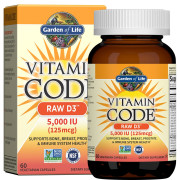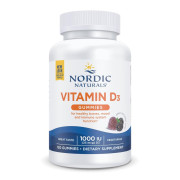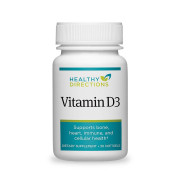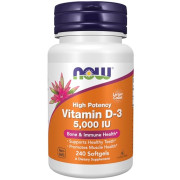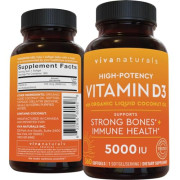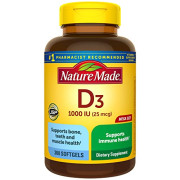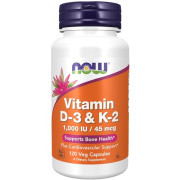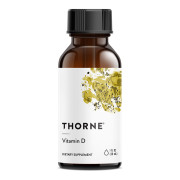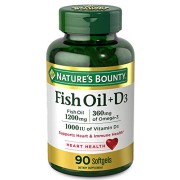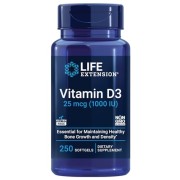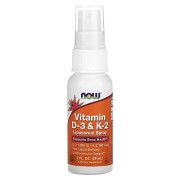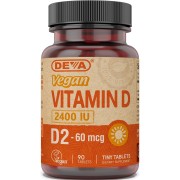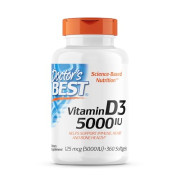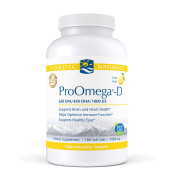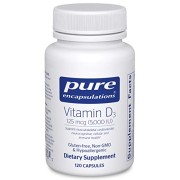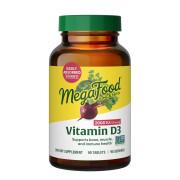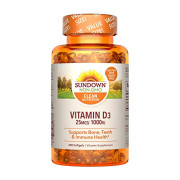BEST Vitamin D PRODUCTS
Supplement your diet with Vitamin D and improve your overall immunity. Contrary to popular belief, this essential vitamin is not received from the sun, but sunlight helps spark the natural creation of Vitamin D in the skin.
If you’re experiencing symptoms of Vitamin D deficiency, it might be an indication that your food intake is lacking. Augment your immune system and bone health and reduce your chances of developing osteological maladies.
Too much at once can cause harmful toxicity. Make sure to check the recommended amounts of Vitamin D supplements for you and control your dosage responsibly.
It’s generally accepted that your body cannot synthesize vitamins in sufficient quantities on its own. There are a few technical exceptions, but for the most part, you need to acquire vitamins from your diet.
You could also supplement your intake if you feel you’re suffering from a deficiency. You could also expose yourself to sunlight, in the case of Vitamin D generation.
We recommend that you read labels, warnings and directions of all products before use and not rely solely on the information provided by supplements org. Statements regarding dietary supplements have not been evaluated by the FDA and are not intended to diagnose, treat, cure, or prevent any disease or health condition. Under no circumstances should any information found on this website be considered a replacement for personal medical guidance from a qualified clinician or your own doctor, irrespective of the publication date.
It’s generally accepted that your body cannot synthesize vitamins in sufficient quantities on its own. There are a few technical exceptions, but for the most part, you need to acquire vitamins from your diet.
You could also supplement your intake if you feel you’re suffering from a deficiency. You could also expose yourself to sunlight, in the case of Vitamin D generation.
DAILY INTAKE
A significant number of individuals do not obtain an adequate amount of this essential nutrient.
Although the human body utilizes sunlight to produce vitamin D, it fails to generate sufficient quantities when residing in northern regions or having limited sun exposure.
The Recommended Dietary Allowance for vitamin D specifies the daily quantity necessary to support optimal bone health and maintain normal calcium metabolism in individuals who are generally healthy.
It’s generally accepted that your body cannot synthesize vitamins in sufficient quantities on its own. There are a few technical exceptions, but for the most part, you need to acquire vitamins from your diet.
You could also supplement your intake if you feel you’re suffering from a deficiency. You could also expose yourself to sunlight, in the case of Vitamin D generation.
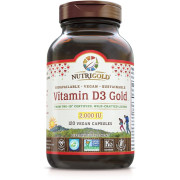
It’s generally accepted that your body cannot synthesize vitamins in sufficient quantities on its own. There are a few technical exceptions, but for the most part, you need to acquire vitamins from your diet.
You could also supplement your intake if you feel you’re suffering from a deficiency. You could also expose yourself to sunlight, in the case of Vitamin D generation.
Popular Vitamin D health topics

- Vitamin D
- Nicotinamide Riboside
- Resveratrol
- Skullcap
- Forskolin
- PQQ
- Ubiquinol, CoQ10
- Alpha Lipoic Acid
- Berberine
- Coenzyme Q10
- Astragalus
- DHEA
- Pterostilbene
- Curcumin
- Omega 3 Fish Oil
- Vitamin C
- N-Acetyl Cysteine (NAC)
- Royal Jelly
- Spirulina
- Zinc
- Acetyl L-Carnitine
- Type II Collagen
- Jiaogulan
- L-Glutathione
- Creatine Monohydrate
- Cordyceps
- Fisetin
- Whey Protein
- Glycine
- Polyphenols
- D-Ribose
- Apigenin

- Astragalus
- Multivitamins
- N-Acetyl Cysteine (NAC)
- Echinacea
- Vitamin D
- Vitamin C
- Zinc
- L-Glutamine
- Vitamin B12
- Vitamin B6
- Elderberry
- Garlic
- Probiotics
- Spirulina
- Mushrooms
- Maitake
- Cordyceps
- Selenium
- Olive Leaf
- Larix (Larch Extract)
- Colostrum
- Black Seed
- Nettle
- Amla
- Oregano Oil
- Propolis
- Antioxidants
- Chaga

- Curcumin
- Omega 3 Fish Oil
- Alpha Lipoic Acid
- N-Acetyl Cysteine (NAC)
- Vitamin C
- Ginger
- Resveratrol
- Spirulina
- Lactobacillus
- Oregano Oil
- SAM-e
- Zinc
- Frankincense Oil
- Kudzu
- Feverfew
- Green Tea
- Cat's Claw
- Krill Oil
- L-Glutathione
- Olive Leaf
- MSM
- d-Limonene
- Vitamin D
- Pomegranate
- Quercetin
- Grape Seed Extract
- Garlic
- Astaxanthin
- Sulforaphane Glucosinolate
- Coffee

- L-Carnitine
- Acetyl L-Carnitine
- Green Tea
- Fat Burners
- Omega 3 Fish Oil
- Berberine
- Glucomannan
- Fiber
- Caffeine
- Vitamin D
- Garcinia Cambogia
- BCAA
- Whey Protein
- CLA (Conjugated Linoleic Acid)
- Bitter Orange
- 7-Keto DHEA
- Amla
- Caralluma
- Forskolin
- White Kidney Bean Extract
- Red Raspberry
- Appetite Suppressant
- MCT Oil
- d-Limonene
- Alpha Lipoic Acid
- 5-HTP
- Guggul
- Stevia
- Coffee
Frequently Asked Questions
Kindly be aware that statements concerning dietary supplements have not been subjected to FDA evaluation and are not intended for the purpose of diagnosing, treating, or preventing any diseases or health conditions.
Vitamin D plays a crucial role in several body functions, including promoting calcium absorption in the gut, supporting bone health, maintaining immune function, regulating cell growth, reducing inflammation, and supporting neuromuscular function.
The time it takes for vitamin D to produce noticeable benefits can vary depending on individual factors such as current vitamin D levels, age, weight, and overall health. Generally, it can take a few weeks to a few months for vitamin D supplements to noticeably impact vitamin D levels in the body. However, achieving optimal health benefits may take longer.
Vitamin D is a generic term that refers to a group of fat-soluble vitamins, including vitamin D2 (ergocalciferol) and vitamin D3 (cholecalciferol). Vitamin D2 is primarily obtained from plant sources, while vitamin D3 is mainly found in animal sources and synthesized by the skin upon exposure to sunlight. Vitamin D3 is more potent and effective at raising blood levels of vitamin D compared to vitamin D2.
The recommended daily allowance (RDA) of vitamin D varies depending on factors such as age, sex, and life stage. For adults up to age 70, the RDA is 600 IU (15 mcg) per day, and for those over 70 years, the RDA is 800 IU (20 mcg) per day. However, individual needs may differ, and factors such as sun exposure, diet, and health conditions can influence how much vitamin D one should take. Consult with a healthcare professional to determine the appropriate dosage for your specific needs.
Vitamin D is found naturally in a few foods, including fatty fish (salmon, mackerel, sardines), cod liver oil, beef liver, cheese, and egg yolks. Some foods are fortified with vitamin D, including milk, orange juice, and cereals. Additionally, vitamin D can be synthesised by the skin upon exposure to sunlight.
Vitamin D is essential for a variety of body functions. It plays a key role in maintaining healthy bones and teeth by promoting calcium absorption in the gut. It also supports immune function, regulates cell growth, reduces inflammation, and supports neuromuscular function. Adequate levels of vitamin D are associated with a reduced risk of certain chronic diseases and may support overall health and well-being.
Vitamin D plays a crucial role in several body functions, including promoting calcium absorption in the gut, supporting bone health, maintaining immune function, regulating cell growth, reducing inflammation, and supporting neuromuscular function.
The time it takes for vitamin D to produce noticeable benefits can vary depending on individual factors such as current vitamin D levels, age, weight, and overall health. Generally, it can take a few weeks to a few months for vitamin D supplements to noticeably impact vitamin D levels in the body. However, achieving optimal health benefits may take longer.
Vitamin D is a generic term that refers to a group of fat-soluble vitamins, including vitamin D2 (ergocalciferol) and vitamin D3 (cholecalciferol). Vitamin D2 is primarily obtained from plant sources, while vitamin D3 is mainly found in animal sources and synthesized by the skin upon exposure to sunlight. Vitamin D3 is more potent and effective at raising blood levels of vitamin D compared to vitamin D2.
The recommended daily allowance (RDA) of vitamin D varies depending on factors such as age, sex, and life stage. For adults up to age 70, the RDA is 600 IU (15 mcg) per day, and for those over 70 years, the RDA is 800 IU (20 mcg) per day. However, individual needs may differ, and factors such as sun exposure, diet, and health conditions can influence how much vitamin D one should take. Consult with a healthcare professional to determine the appropriate dosage for your specific needs.
Vitamin D is found naturally in a few foods, including fatty fish (salmon, mackerel, sardines), cod liver oil, beef liver, cheese, and egg yolks. Some foods are fortified with vitamin D, including milk, orange juice, and cereals. Additionally, vitamin D can be synthesised by the skin upon exposure to sunlight.
Vitamin D is essential for a variety of body functions. It plays a key role in maintaining healthy bones and teeth by promoting calcium absorption in the gut. It also supports immune function, regulates cell growth, reduces inflammation, and supports neuromuscular function. Adequate levels of vitamin D are associated with a reduced risk of certain chronic diseases and may support overall health and well-being.


